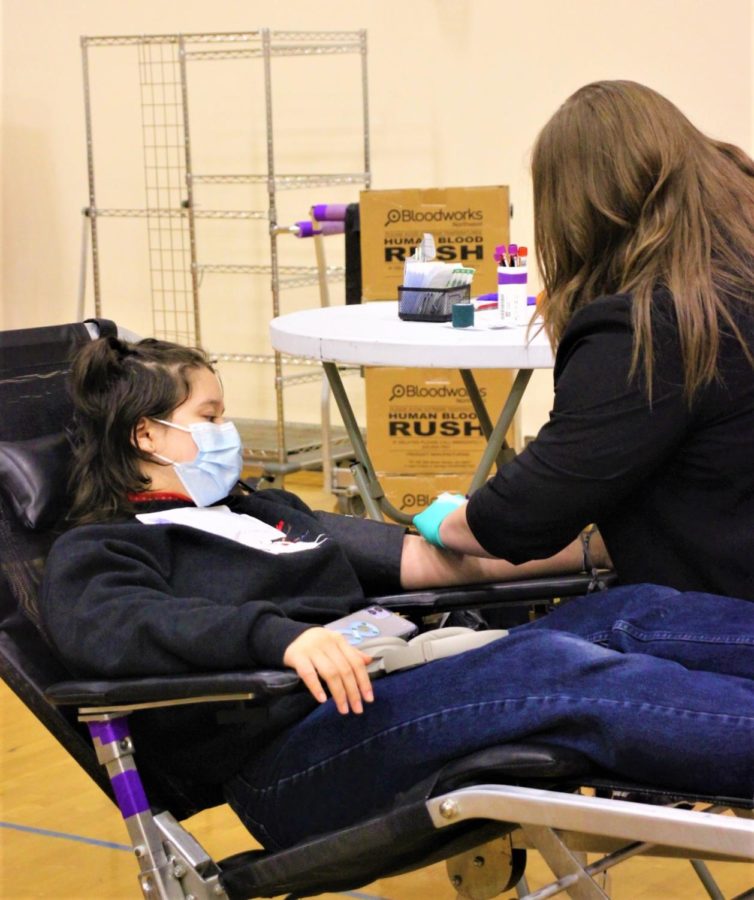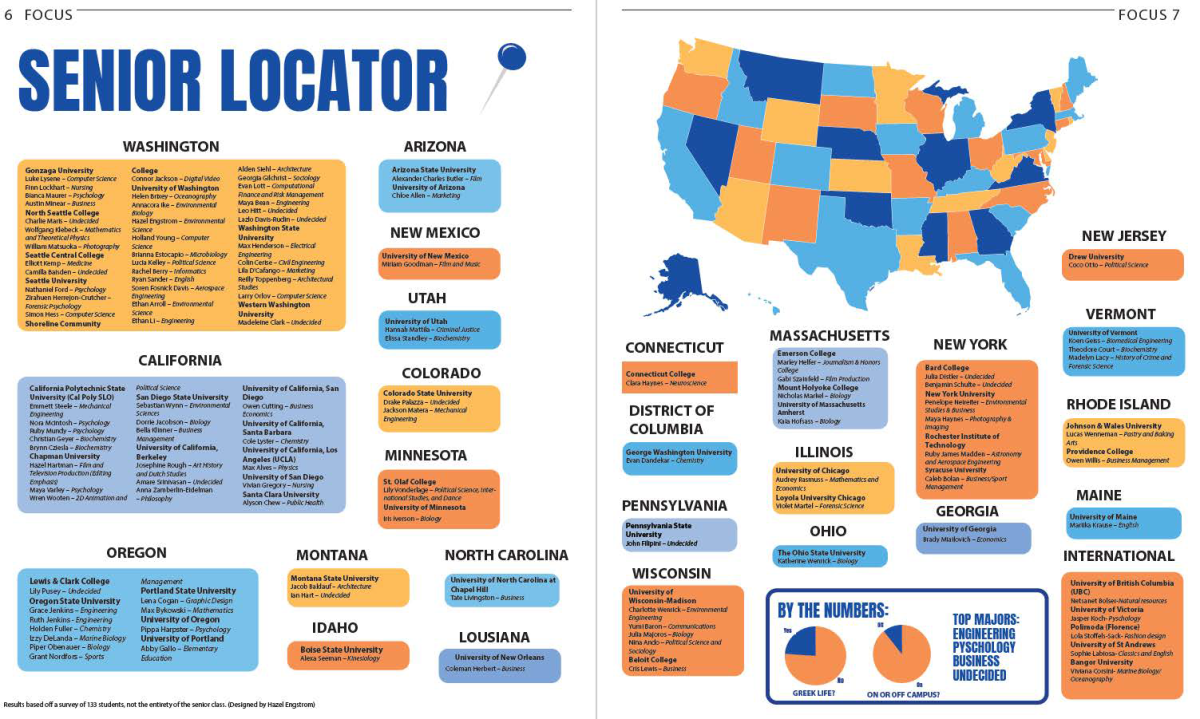NHS hosts blood drive in collaboration with Bloodworks
Students and staff provide lifesaving donations to hospitals across the Pacific Northwest
Izzy Kim (12) sits back as a Bloodworks Northwest employee prepares her arm for blood donation.
December 16, 2022
Since the onset of the COVID-19 pandemic, blood centers across the nation have been experiencing a shortage of donations. Washington is no exception, with the WA Department of Health urging eligible donors to give blood.
Recently, on Dec. 9, the school’s National Honors Society (NHS) hosted a blood drive in the Auxiliary Gym with hopes of supplying lifesaving donations to the community.
NHS president, senior Bella Neireiter, explained the purpose and goals of the organization.
“NHS is a collective of students who value academics and have high GPAs,” Neireiter said. “We come together to give back and put on different service events to help the surrounding community.”
The blood drive was organized in collaboration with Bloodworks Northwest, a local blood bank and medical research institute.
“[Bloodworks] is an organization that Ballard has partnered with for years now,” Neireiter said. “And this is the first blood drive we’ve had since the pandemic.”
According to Neireiter, the overall response to the drive was enthusiastic, with 30 plus students signing up to donate.
Wendy Chu, the community engagement liaison for Bloodworks Northwest, echoed this opinion, agreeing that the drive was met with schoolwide support.
“Everyone is very supportive and passionate about the blood drive. It’s always fun to have events at Ballard,” Chu said in an email interview.
Donations with Bloodworks provide a significant amount of the blood supply to Pacific Northwest hospitals.
“[It goes] to local hospitals – Seattle Children’s Hospital, UW Medical Center, Swedish Medical Center, Fred Hutchinson Cancer Research Center, just to name a few,” Chu said over email.
Donated blood can be used for research in blood biology, transfusion medicine and the treatment of blood disorders. It can also help treat patients with traumatic injuries, those undergoing surgeries or receiving treatment for cancer and blood disorders.
“You’re saving a life by giving a pint of blood,” Neireiter said. “And every pint counts.”
Giving blood also has various benefits for the donor, from health screening to improvements in mental health.
“It can effectively detect problems that could indicate an underlying medical condition or risk factors for certain diseases,” Chu said over email. “According to a report by the Mental Health Foundation, helping others can: reduce stress, help get rid of negative feelings, provide a sense of belonging and reduce isolation.”




















